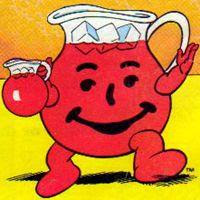************************************************
What is the first thing you did when you heard the news that someone you loved died? Did the hand holding the phone stop cooperating? Did the phone fall to the floor? Or did you? Did you fall silent? Or start repeating one word over and over and over, such as, "No. No. No."? Or was it relief you felt, relief for a suffering that finally passed? Were your reactions nothing more than learned responses? Were these reactions simply the summing of chemicals and electrical pulses? If so, then why did it hurt so badly? Why do we mourn the way we do?
It's not as if we get a crash course in these things. And we never get one when everyone around us is in good health and accounted for. There isn't a childhood moment where our parents anxiously sit us down to give us "the talk" concerning proper protocol for when someone close to us departs this realm we are all adventuring through. Death does not discriminate between those who are prepared and those who are not. The fact is, if we chose to participate in human relationship, eventally all of us, every single one of us will find ourselves standing in a church, a funeral parlor or next to a big rectangle hole in the ground, stuttering and stammering for the right words to say. And yet somehow, in those situations, it seems we all fall in line with a certain set of activites and customs, whether we have experienced them previosuly or not.
It customarily plays out like this:
- News is received and we are stunned
- A furious bustle of activity including phone calls, emails, red-eye flights, and 4 hour drives at 1am.
- Decisions, decisions, decisions, as a complex and choreographed funeral is designed.
- Flowers, cards, gifts, donations come in.
- A viewing
- A funeral
- A burial
- A memorial
- Everyone congregates somewhere for food
- Family, friends, the church, the neighbors make extra casseroles for the departed's family to alleviate the preparation of food in the coming days.
- Everyone tracks the families grieving process.
And that grieving process is important to all of us. Depression, guilt, anger, hope, etc. All part of it.
But there is also a whole list of rituals and traditions that transpire during observance of a death. We all share a common yet unspoken knowledge of how to act. These acts are referred to as "mourning." Just name a few:
- Wearing black
- Speaking well of the departed
- We all pat the mourner on the back and exert sympathy and some form of, "i am so sorry, this is so awful. At least they are in a better place."
Why do we do this?
Fear and awe, both in the same.
At the edge of life, between the living and the dead, between the material and the immaterial, there is unavoidable awe. Perhaps all this absurdity of tradition points to the simple fact that death scares us. It has always scared us. It is beyond our finite understanding, and the crazier these customs appear, the more deeply that reality can be felt. No matter how tighly packed our doctrine, at the edge of a rectangular hole in the ground (regardless of how many flowers surround it) there are leaks. It is then, more than at any other moment, that we see clearly how dimly we see.
It is now not the souls of those departed that we worry about, but our own. It is at the grave that our wonder begins. It is there that we need to believe in something more, something bigger and grander than our hands can touch (or dissect) or that our eyes can see (with or without magnification). It is there that we need all our notions of heaven to be real. It is our souls that need the comfort.
We go through the motions and rituals not because it is expected of us but because we are scared of the possible finality of it all. We do all of this to remember.
To remember.
What was the last conversation you shared? Your last meal together? What words do you wish had exited your mouth? What would you say now if given the chance? What is your most loved memory? When was the moment you felt closest? What were the things they'd get excited about? What makes you think of them? What do you miss the most? Wouldn't you rather feel this sadness, bear this weight, and mourn their absence than never have been touched by them?
Upon death, we hold a wake to remind us of how precious a person's life was. We order tombstones as a monument of love. We speak well of the departed because there is no use in speaking ill of them. We wear black to show that under the surface, there is a left an immense cavern. We are sad becasue something has been lost.

2 comments:
17 years ago today my girlfriend's dad died.
I have this massive sorrow in my heart for her, her mother, her family.
I hate death.
I am scared of it.
It is tearing at me more than I would have thought. I have buried plenty of people, both as a person and as a pastor. I have yet to cry at a funeral. I don't know why...
Your post really spoke to me.
Thanks.
I am glad to help, soothe, or even just show you that other's share your fears and anxiety.
Death is NOT something I look forward to very much at all. I am often skeptical/jealous of the people who say they are not fearful of death.
How can I get there?
How can I have the peace they claim (and show) to have about it?
It's all way too weird...
Post a Comment